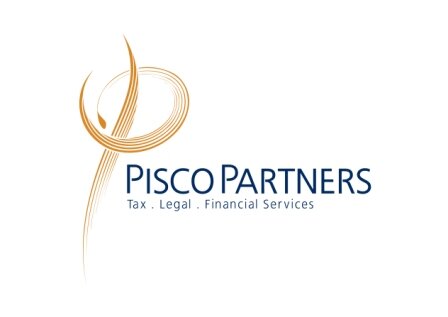Best Corporate Governance Lawyers in Ta' Xbiex
Share your needs with us, get contacted by law firms.
Free. Takes 2 min.
List of the best lawyers in Ta' Xbiex, Malta
About Corporate Governance Law in Ta' Xbiex, Malta
Corporate governance refers to the structure, principles, and processes by which companies are directed and controlled. In Ta' Xbiex, Malta, corporate governance is particularly important due to the locality's thriving financial and commercial sector. Many companies, including international businesses, establish their headquarters or branches in Ta' Xbiex to benefit from Malta's strong regulatory framework and business-friendly environment. Local laws align with European Union requirements and global best practices, ensuring proper oversight, accountability, and transparency within organizations.
Why You May Need a Lawyer
Seeking legal advice relating to corporate governance can be crucial in various scenarios. Here are some common situations where professional assistance is essential:
- Establishing a new company and setting up governance structures such as the board of directors, committees, and internal policies
- Ensuring compliance with Maltese legislative and regulatory requirements
- Handling shareholder agreements and resolving disputes between stakeholders
- Managing director and officer duties, responsibilities, and potential liabilities
- Conducting mergers, acquisitions, or corporate restructuring
- Addressing conflicts of interest and related-party transactions
- Responding to regulatory investigations or inspections
- Enhancing internal controls and audit processes
- Advising on anti-money laundering and corporate transparency obligations
A lawyer proficient in corporate governance ensures the company operates within the law, prevents costly disputes, and supports growth objectives.
Local Laws Overview
Corporate governance in Ta' Xbiex is principally governed by Maltese national law. Here are some key legal aspects relevant to companies operating in the area:
- Companies Act (Chapter 386, Laws of Malta) This is the primary legislation governing company formation, administration, duties of directors, shareholder rights, and disclosure obligations. It sets out the minimum standards for corporate governance in Malta.
- Listing Rules by Malta Financial Services Authority (MFSA) For listed entities or those seeking public capital, the MFSA Listing Rules include additional governance requirements concerning transparency, risk management, and board composition.
- Corporate Governance Code While not binding, the MFSA has issued a Code of Principles of Good Corporate Governance, encouraging best practices in board effectiveness, stakeholder engagement, and ethical standards.
- Anti-Money Laundering Regulations Companies must implement proper procedures to prevent money laundering and terrorism financing, overseen by the Financial Intelligence Analysis Unit (FIAU).
- Data Protection Laws Compliance with the General Data Protection Regulation (GDPR) is compulsory for all companies handling personal data.
Additional laws may apply depending on the company sector, such as banking, insurance, or gaming, all of which require stricter governance standards.
Frequently Asked Questions
What is corporate governance and why is it important?
Corporate governance refers to the frameworks, rules, and processes for directing and controlling companies. It ensures companies act ethically, responsibly, and in the best interests of stakeholders.
Are there specific laws for corporate governance in Ta' Xbiex?
While Ta' Xbiex adheres to national Maltese laws, all companies in this locality must comply with the Companies Act, MFSA rules, and other relevant regulations.
Do all companies need to follow the same governance standards?
While basic requirements apply to all limited liability companies, additional rules may apply to companies in regulated sectors or those listed on public exchanges.
What are the duties of directors in Maltese companies?
Directors are responsible for managing the company in good faith and with proper care, complying with legal obligations, maintaining company records, and ensuring disclosures.
How can shareholders be involved in governance?
Shareholders exercise rights primarily through voting at general meetings, approving major decisions, and appointing or removing directors.
What happens if a company fails to comply with governance requirements?
Non-compliance can lead to penalties, fines, disqualification of directors, or legal action from stakeholders or regulators.
How can companies manage conflicts of interest?
Companies should establish formal policies and procedures to disclose, manage, and resolve conflicts of interest to avoid legal and reputational risks.
What is the role of the Malta Financial Services Authority?
The MFSA regulates and supervises financial services and companies, ensuring proper governance, market integrity, and compliance with laws.
Do foreign-owned companies have different governance requirements?
Foreign-owned companies must comply with the same Maltese laws as local entities but may have additional reporting or transparency obligations depending on their ownership structure and industry.
How can I improve my company's corporate governance?
Engage experienced legal counsel, adopt transparent policies, train directors and employees, implement risk management systems, and conduct regular governance reviews.
Additional Resources
For those seeking further guidance on corporate governance in Ta' Xbiex, Malta, these resources can be particularly helpful:
- Malta Financial Services Authority (MFSA)
- Malta Business Registry (MBR)
- Financial Intelligence Analysis Unit (FIAU)
- Chamber of Commerce, Enterprise and Industry
- Institute of Directors (Malta branch)
- Certified Public Accountants and Auditors organizations in Malta
These organizations provide guidelines, regulatory updates, and professional support relevant to corporate governance and compliance.
Next Steps
If you require legal assistance in the field of corporate governance in Ta' Xbiex, Malta, consider the following actions:
- Identify the specific governance issue or question you need help with
- Contact a qualified Maltese corporate lawyer with relevant expertise
- Prepare all necessary company documents, records, or correspondence for your consultation
- Stay informed about your legal obligations by reviewing official guidance from the MFSA or relevant authorities
- Consider ongoing legal support or company secretarial services for ongoing compliance and governance improvement
Taking these steps helps safeguard your company's reputation, mitigates legal risks, and creates a sustainable environment for growth and transparency.
Lawzana helps you find the best lawyers and law firms in Ta' Xbiex through a curated and pre-screened list of qualified legal professionals. Our platform offers rankings and detailed profiles of attorneys and law firms, allowing you to compare based on practice areas, including Corporate Governance, experience, and client feedback.
Each profile includes a description of the firm's areas of practice, client reviews, team members and partners, year of establishment, spoken languages, office locations, contact information, social media presence, and any published articles or resources. Most firms on our platform speak English and are experienced in both local and international legal matters.
Get a quote from top-rated law firms in Ta' Xbiex, Malta — quickly, securely, and without unnecessary hassle.
Disclaimer:
The information provided on this page is for general informational purposes only and does not constitute legal advice. While we strive to ensure the accuracy and relevance of the content, legal information may change over time, and interpretations of the law can vary. You should always consult with a qualified legal professional for advice specific to your situation.
We disclaim all liability for actions taken or not taken based on the content of this page. If you believe any information is incorrect or outdated, please contact us, and we will review and update it where appropriate.











